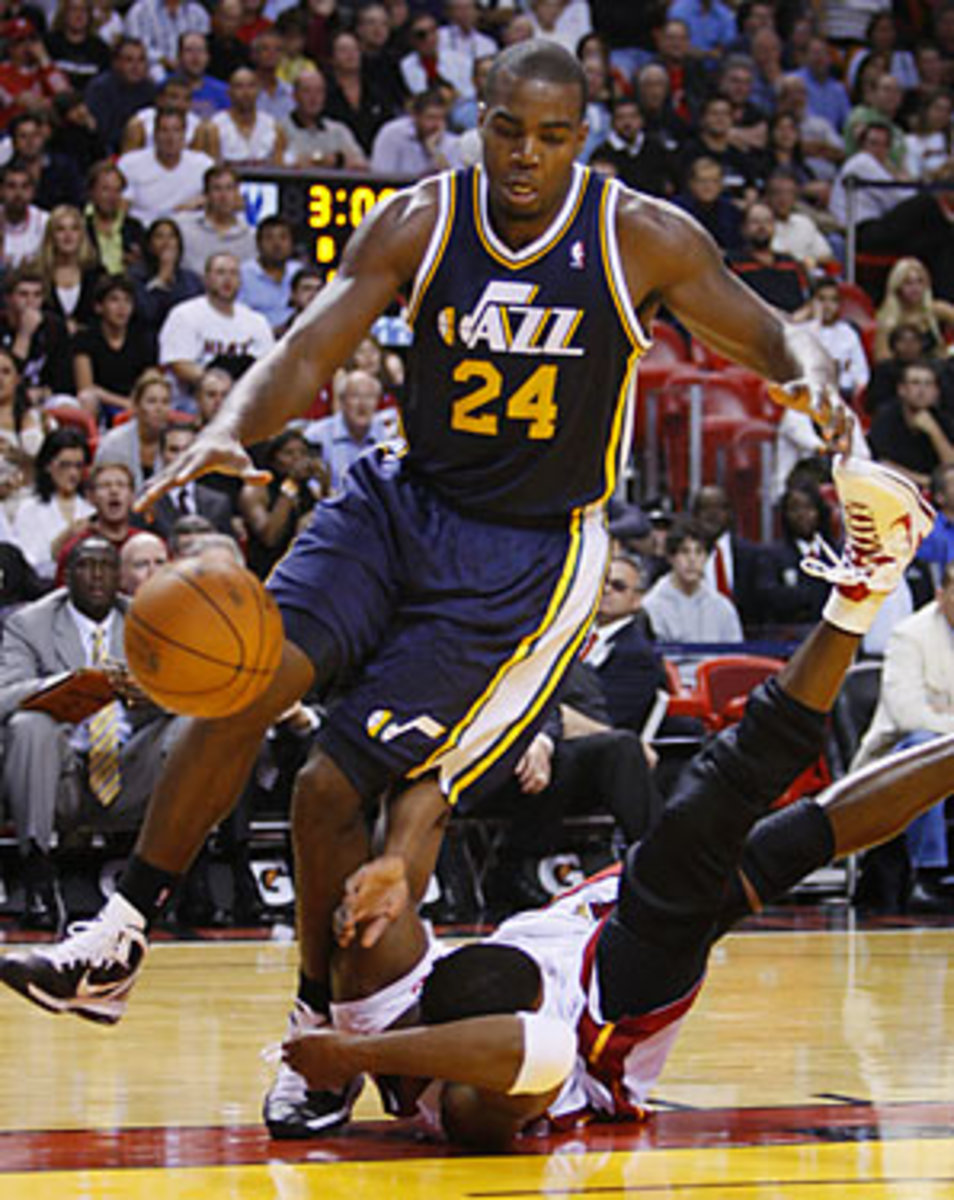Millsap proves he's ready to lead
Millsap fell to the second round, in part because of his unimpressive showing in Orlando, and the Jazz grabbed him with the 47th pick. Millsap made for a sweet footnote, another power forward from Louisiana Tech, following the lead of Karl Malone. But the Jazz soon learned that Millsap had more in common with Malone than his alma mater. "They are no-nonsense guys," said Jazz coach Jerry Sloan, "who work all the time." Millsap would spend hours shooting three-pointers in practice, though he rarely attempted one in a game. Point guard Deron Williams would ask him before every season, "You going to start shooting them now?"
Heading into Tuesday night in Miami, Millsap had taken 20 three-pointers in his career and made two. It's not that he passed up the outside shot. He barely even stepped out to the perimeter. As the backup to Carlos Boozer, Millsap viewed himself as a designated bruiser, and last season he averaged a workmanlike 11.6 points and 6.8 rebounds. He was quietly studying the Jazz system, preparing to show the world what he was showing his teammates in practice.
This summer, Boozer left Utah for Chicago, and the following week, the Jazz traded for Al Jefferson. In theory, Jefferson would replace Boozer's offense, regardless of whether he was playing power forward or center. But Millsap saw the situation differently. His opportunity had finally arrived. "This season was what I've been waiting for all my life," he said. "My thing was to come out and prove I am worthy to play that position."
Most players need months to make their case. Millsap made it in one night. He poured in 46 points on Tuesday, the most he could remember scoring in his whole life. He sank three three-pointers, more than his career total. He led the Jazz back from a 22-point deficit, threw in a put-back at the buzzer to force overtime, and then finished a 116-114 victory with Jefferson benched and Williams fouled out. "Miracle," said Williams, sounding almost as dumbfounded as the Heat, who lost on their home floor for the first time this season. "I've never seen [Millsap] hit a three before," said Bosh. "In my mind, when he was shooting it, I was saying, 'Box out, it's probably coming off.' At the end of the day, if you look at every player they have, he was probably the one we wanted shooting it."
Millsap's supporting cast in overtime included Kyrylo Fesenko, C.J. Miles, Ronnie Price and Francisco Elson, none of whom was in the starting lineup. They were up against LeBron James, Dwyane Wade and Bosh. It felt like a first-round NCAA tournament game and the Jazz was the 15-seed. "I couldn't watch," Williams said. Neither could a lot of Heat fans, who bolted when their team was up by six points with 27.3 seconds left in regulation. They missed an uprising from Millsap that called to mind Reggie Miller more than Malone. In the final 12.1 seconds, Millsap scored eight points, with two three-pointers.
The Jazz attributed their surge to a motivational speech by Raja Bell at halftime and a tongue-lashing from Sloan, who saw his team setting half-hearted screens in the second quarter and thought they might be quitting. But opponents should know by now that Utah teams do not quit. "I got pissed off by the look on the faces of the Miami players," said Fesenko. "It's like they were winning and that's how it was supposed to be."
Sloan went with Fesenko over Jefferson in the fourth quarter and in overtime, until Fesenko sprinted off the court late in OT, for fear the Heat would foul him. "I'm not sure under so much pressure I can make both free throws," said Fesenko, a career 38 percent foul shooter. He was relieved by Elson, who drained the clinching free throws and set off a minor celebration in the Jazz locker room, where Price hummed "It's a beautiful day in the neighborhood."
The Jazz are famously understated, but even they acknowledged this was no typical November win. They have sputtered without Boozer, losing three of their first six games and needing double overtime to beat the Clippers at home on Saturday. Jefferson is still learning the offense, which requires big men to make more reads than he is accustomed. Jefferson admits that he may not fully grasp all the concepts until January. Millsap, on the other hand, has spent four years in the system. He has mastered it the way scouts and coaches predicted he would, back when he was a fringe prospect in Orlando. Millsap has earned the green light.
"He will have it," Sloan said, "from now on."





